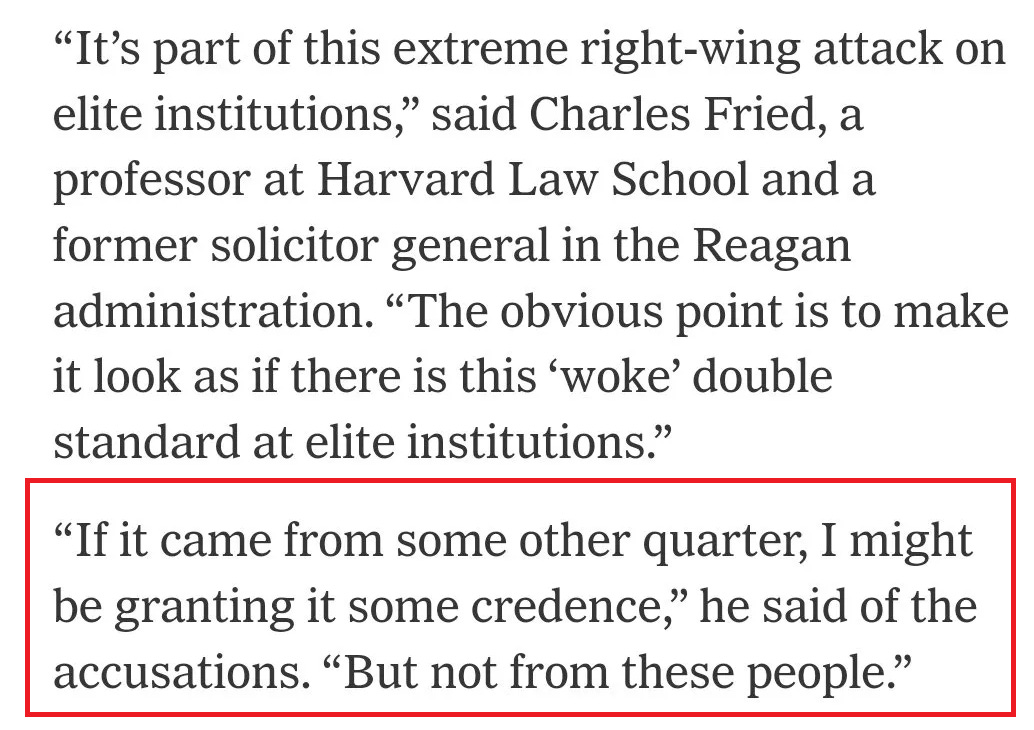Prioritizing origin over truth is a recipe for ignorance
We're at a weird point in history, where people immediately write off ideas simply because a person (or group) they don't like said them. It's silly and childish...
Over the last few years a concerning trend has become persistent: the tendency to elevate the origin of a statement over its truthfulness. This bias, where pedigree is held over logic, fosters an anti-intellectual, illiberal and ultimately unscientific approach to knowledge, as others have pointed out. By privileging the source over substance and dismissing ideas because they’re from ‘those we don’t like’ we risk constructing echo chambers of confirmation bias, stifling collective and individual intellectual progress, and poisoning the well of discourse. It’s also one the reasons smart people believe stupid things.
This misplaced reverence for origin comes to us in various forms, you see them on display all the time. Political partisans cherry-pick facts that conform to their ideology, dismissing inconvenient truths from sources they don’t like. Religious dogmatists cling to archaic pronouncements, shunning inquiry that challenges their established narratives. Intellectual gatekeepers entrenched in their disciplines and closed off to outsiders dismiss ideas from those external of their tribe at best, and more frequently (at worst) simply troll the other side or engage in ad-hominem attacks. Media use it to fuel a ‘subprime attention bubble’ I’ve spoken about previously.

Philosopher Bertrand Russell previously captured the danger of this, lamenting that "the whole realm of the unmentionable... is governed by the fear of some unknown authority whose disapproval is to be dreaded." This fear, whether rooted in political allegiance, religious piety, or academic orthodoxy, stifles open inquiry and impedes the pursuit of truth.
Even more frightening, prioritizing origin over truth runs counter to the spirit of scientific inquiry. We saw this on display over the COVID pandemic when we were continually told it wasn’t a lab leak, and turned out it likely was. The scientific method hinges on the rigorous evaluation of evidence, regardless of provenance. A groundbreaking discovery by a young, unknown researcher should be no less valid than one made by a Nobel laureate. The only arbiter of truth in science is the weight of evidence and the rigorous scrutiny of peer review.

The consequences of privileging origin over truth are far-reaching. It breeds intellectual stagnation, impeding progress in fields from medicine to politics. It fosters tribalism and division, creating an environment where facts are weaponized to demonize opponents rather than illuminate shared realities. It undermines critical thinking, replacing reasoned discourse with blind adherence to authority figures or ideological narratives.
So, how do we combat this ill of modernity? The antidote lies in cultivating a healthy skepticism, a willingness to fearlessly question all claims, regardless of source. We must embrace intellectual humility, recognizing that even the most learned among us hold fallible beliefs. We must prioritize open inquiry and critical thinking, judging ideas on their merits rather than the prestige of their originators.
The pedigree of an idea is really just a flimsy cloak and part of the credentialism-industrial complex (appeal to authority). It is the truth, stripped bare and examined in the harsh light of critical scrutiny, that holds the key to unlocking a brighter future. “We can ignore reality but we cannot ignore the consequences of ignoring reality,” as Rand (love or hate her) gets right. So truth, not origin, must be the ultimate currency. And, on a long enough timeline, it’s how you connect and build trust.
Bonus: this talk from Jon Haidt is related and important. Highly suggest watching if you haven’t.




Thanks, this is a thoughtful piece that raises good issues. Particularly when it comes to things that are politically or otherwise contentious, a lot of people have a tendency to disregard information that comes from the other side, regardless of its veracity.
There are a couple of reasons that I think this tends to happen that present real challenges for truth seekers.
One is that it is simply a lot of work, and for sufficiently complex subject matter, perhaps beyond the scope of the average person, to verify a claim. The other is the trustworthiness of a source. In a lot of heated discussions, people are inclined to present facts in the very best light for their side, while disregarding points that might favor the other side. Put together, these put a real burden on the individual to get things right. And I think, for that reason, they tend to fall back into accepting things that align with those they know and trust.
Doing the work to know what is true is often more work than people are able to do. This is one reason why failures in academia, journalism and governmental reporting are so damaging.
Personally, I have a hard time believing anything I hear and only half of what I see. Most of the "sources" are just a bunch of narcissistic hacks posing as journalists. I can't get the truth no matter the source. Everyone has an opinion, and I can't find the truth. So, for me, except for this post, I'll just keep my mouth shut and pray that God gives me some insight and discernment.